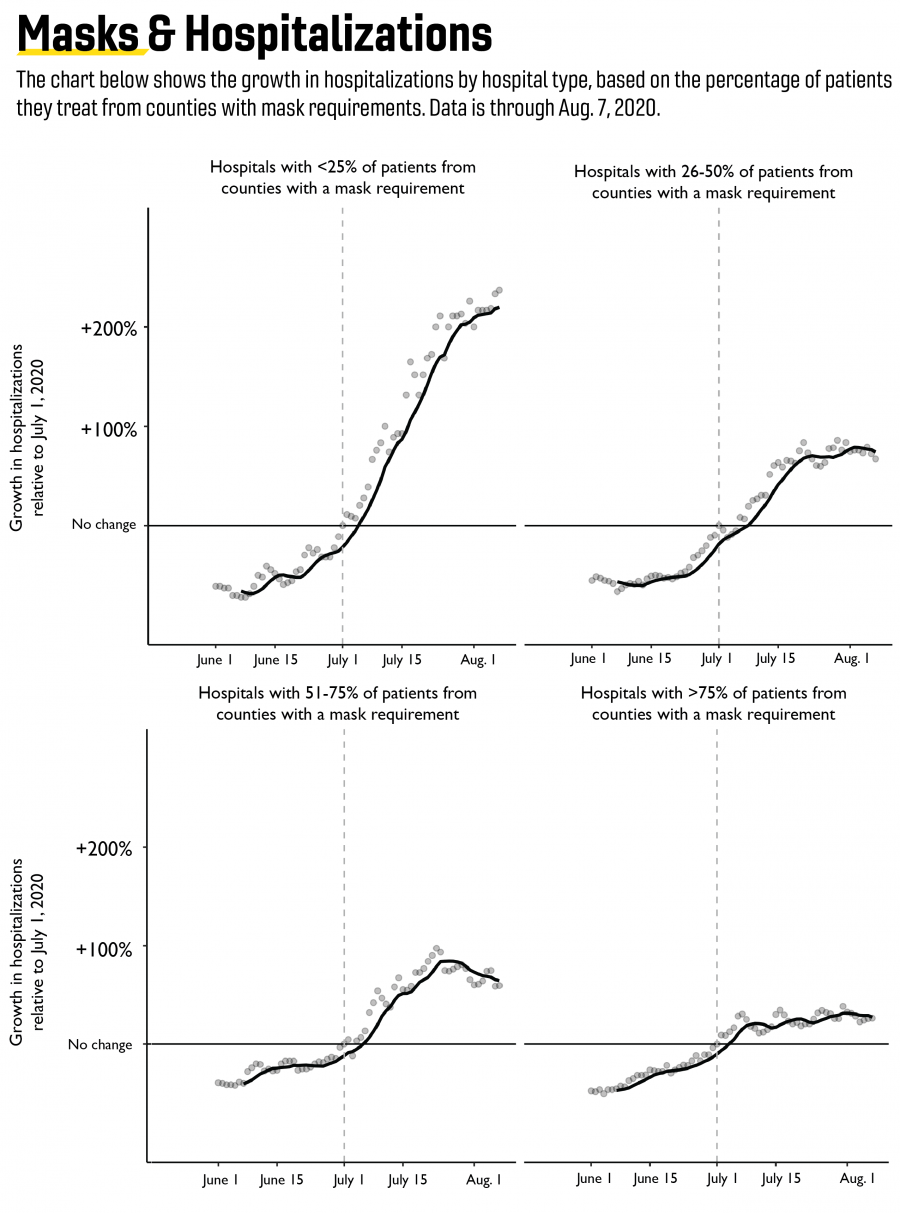
In a new analysis, researchers from the Department of Health Policy at Vanderbilt University School of Medicine and Vanderbilt University Medical Center have found a relationship between the growth of hospitalizations and masking requirements put in place across the state.
Hospitals that have more than 75% of their patients from areas without masking requirements in place have seen a relatively faster increase in patients with COVID-19 than hospitals with higher percentages of patients from areas with masking requirements in place.
Importantly, the analysis notes that it is difficult to say with certainty that masks are the sole cause for this trend because there are often other mitigation measures in place as well, like restrictions on large gatherings and some businesses and industries.
“There is a lot of variation in both how the pandemic has played out and the masking requirements across Tennessee, and we wanted to know if there’s any association between those requirements and COVID-19 hospitalizations,” said John Graves, PhD, associate professor of Health Policy and director of the Center for Health Economic Modeling at Vanderbilt.
The analysis finds that as of Aug. 10, roughly 68% of the state’s population is subject to masking requirements of some kind. A total of 26 of Tennessee’s 95 counties had some kind of masking requirement in place as of Aug. 10, according to the analysis.
Using historical patient flow data, which indicates the ZIP codes from which hospitals typically receive their patients, and daily COVID-19 hospitalization data, Graves and fellow researchers were able to group hospitals by the percentage of patients they typically see from areas that have known masking requirements.
Hospitals that have mostly patients from areas without masking requirements on average have seen a more than 200% increase in COVID-19 hospitalizations relative to their July 1 hospitalization totals. Hospitals that see more patients from areas of the state with masking requirements in place have been more stable or declined as the percentage of patients from those areas increases.
“Again, we can’t say for sure that masking is the reason this is happening because there are often other interventions in places like Nashville and Memphis where bars and restaurants are limited, but we do see a clear relationship between areas where masks are required and hospitalizations for the coronavirus,” Graves said.